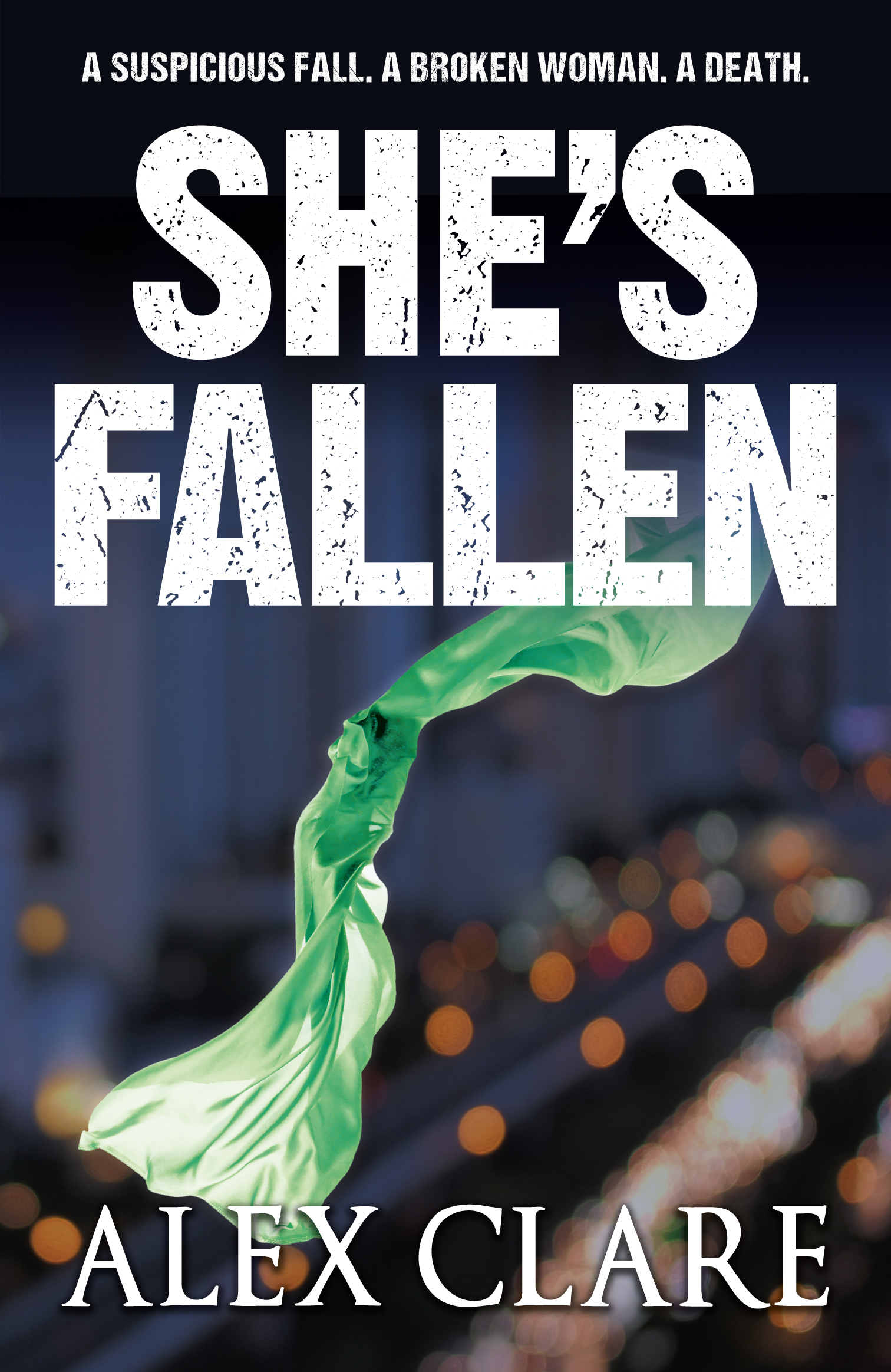It was the upper floor of a solid 1950s style house in Piraeus with heavy ceiling fans and dust-laden blinds obscuring a view of the interior patio; they hadn’t been disturbed in years and didn’t inspire him to initiate anything now. The plane trees in the street spread their huge branches over the roof terrace, shedding leaves across age-mottled stone flags and broken furniture whenever the wind blew. It must have been a palace in previous times, he thought, a secure temple of domestic happiness, but now just a handful of dismal rooms offering only silence and a few framed sepia photos on the wall to hint at history.
He spent all afternoon with a mop and duster, attempting to improve the general appearance, then later, when the sun had finally disappeared, he sat at an oak table in the living room with the door open, playing guitar. The marble steps that descended to the patio had been thoroughly scrubbed with bleach. He’d done a good job, he told himself. It was important to keep on in this vein and to fill his head with fresh thoughts so as not to let the old ones back in. This had to be the clean break where all that nonsense stopped and a new existence began.
Out for a walk he found them in a box near the sea: six tiny squirming lives, eyes screwed tight against the world. He hesitated, then picked up the box and carried it home. Back in the house he tried to clean the puss from their eyes with moistened cotton wool but they seemed to be badly pitted in the struggle for survival, as if Death had been given a head start before they knew anything about it. Straining finally to see through sticky slits they were like half-drowned things when they began their fragile expeditions across the tiled floor. Next day he attempted to feed them by dipping his finger in milk and putting the finger to their mouths. This induced a few despondent licks, but the amount consumed was so negligible that it hardly seemed worth the trouble.
He was off work, or else he’d never have had the time to look after them. Nobody wanted music just now. It was the first week of August, when the city ground to a halt and most of its residents headed for the islands, leaving the rest sluggish and inert indoors, avoiding the sun. There was nothing much to do except lie around; eat, sleep, poke through the junk in the cupboards. One night he got drunk and sat on the double bed bemused, watching them as they staggered in their different directions, trembling on matchstick limbs and squeaking thinly for the mother they’d never find: five white kittens, more or less identical, and one black and white. The next day he collected some planks from the far end of the terrace and made a pen in the empty back room with the Bob Marley poster, left by a previous occupant.
In the street there was a market every Friday, and at this time, most of the tables were straining under piles of watermelons. The stallholders would cut out slices to tempt the public and then the sacrificed fruit was simply cast aside: damaged green balls with their gaping redness left in the gutter along with the rest of the cardboard and vegetable debris. This weekly ritual made him think of Fotini because she’d been mad for them. She was pure malice, he had to admit, but he’d loved her all the same: how she delighted in the simplest of things, like eating chunks of watermelon while engrossed in the afternoon TV soaps and getting carried away by the plot to the point of tears or anger.
He recalled that summer in the old flat when she’d developed such a craze for the stuff that he had to go out when the nearest market was closing and collect all the leftovers, hose them down in the bath and then present her with another glistening pyramid of red cubes. No calories in watermelon, she said. Still, better not to dwell on those times, he thought. After all, you can’t live in the past.
*
Soon the strays began to die and he started thinking that his rescue mission had been a hopeless one. In the pen they slept huddled together at night, but each morning would reveal a new fatality and he’d have to scoop out the body and make a sombre trip down to the rubbish skip area with a plastic bag. This happened four times in the first week, but as the last two survived and grew stronger, he could rest easy that the whole business hadn’t been a complete waste of effort. They soon graduated from milk to tinned sardines and spent their days playing with each other or sprawled on the old terrace sofa, basking in the sun. At times they got under his feet but it was good to have them around.
One Friday afternoon, when he was busy scrubbing tiles in the bathroom, she walked up the steps into the living room and dropped her shoulder bag and a bright green watermelon onto the table with a thump.
He heard the sound and came out.
“You’ve left me three times now,” she said.
“How’d you find me this time?
“Come on Petro, I asked around a bit … and the men in the corner bar told me the exact house.”
“I don’t even know those men … I’ve never been in there.”
“Well they know you, what did you expect?”
A light cotton dress hung loosely around her tanned limbs and she was wearing the brown leather, beaded sandals he’d bought her the year before. Black hair, of course, but funny-coloured eyes: a kind of grey and green. No trace of a line anywhere round those eyes either: she was two years older than him but she could’ve passed for twenty-five. She put her arms around his neck and kissed him full-on. She always seemed to smell so good. He pulled her through the arch into the bedroom and down onto the bed.
*
Fotini detested the kittens of course, just as she had the guitar, his drinking pals or anything else that diverted attention away from her. A couple of times already she’d threatened to smash the instrument over his head when he practised too much, but never dared, knowing it was their only source of income and poverty was her biggest fear. But she had no intentions of returning to factory work in Athens. She gave him her body so damned right that he should do everything for her.
He put the dishes in the sink and went back to the table.
“Stop kicking the kittens,” he said. “I know they can be annoying, but they’re only babies for Christ’s sake.”
“Give me some wine,” she said, ignoring his comment. He topped her up with Mavrodafni and got himself a can of beer from the fridge. She’d only been there five days and already his peaceful world was turned upside down. It was as if he had to get drunk just to cope; to be able to tolerate the mockery and disrespect for everything which was central to her behaviour.
She swallowed the wine and took another stab at the spaghetti bowl.
“What did you bring street cats into the house for anyway? Why waste time on those disgusting things?”
“Everything’s a waste of time to you … you make me sick.”
“Then how is it you’re never away from me for long?”
He stormed down the steps towards the patio. He’d promised to water the neighbours’ plants while they were away on holiday and had almost forgotten. Filling the watering can from the outdoor tap he glanced up and saw Fotini’s shadow on the blinds in the kitchen. Her coming to the house had brought back all the old conflicts and totally sabotaged his plans, but it would be pointless to ask her to leave. Obliging requests just wasn’t her style. Now that she was here, she’d cling like a limpet, for sure. He finished off and went to the mini-market for another beer; all he could think to do was get drunk.
When he got back it seemed that she’d beaten him to it. The big wine bottle was almost empty and she swayed uneasily under the terrace spotlight holding the white kitten at arm’s length over the rail.
“I went to get some watermelon from the fridge and this little bastard was inside eating it. Well he’s going to eat tarmac now …”
“Just put that fucking cat down …”
At first stunned, the animal now appeared to wake up to the situation and began twisting furiously and lashing out with its claws. Fotini yelled in pain as it
went sailing through space in a brief arc to land upright, a dozen feet below, near a car, before scuttling off into the night.
Next thing he knew he had his hands round her throat and was shaking the life from her … she let out a pathetic little choking sound which was oddly subdued, as if she expected such a reaction … and it was probably this that made him come to his senses and stop.
“You’d better go,” he said, “before I find myself up on a charge.”
She tottered back inside, gasping for breath.
He came in furious and said: “I’m going to bed. If you’re still here in the morning I’ll pack and leave myself.”
It rained during the night and he slept fitfully. He had the sensation at times that she was very close; pressing up against him, perhaps for forgiveness, but when he opened his eyes in the morning curiously there was no sign of her. He had a mild hangover and a dry mouth. His stomach was rumbling for food but the only things left were the mouldy remains of a squid and onion fry-up in the oven, stale bread and that ruined watermelon in the fridge.
He found a cold bottle of water and went back to bed where the last kitten had apparently come to join him. The rain began again and turned quickly to thunder and lightening. He knew these summer storms could be violent so he jumped up and secured the shutters of the bedroom window just as a freak bolt hit one of the trees outside, splitting the thick trunk near its top. He heard wood crashing onto the terrace but didn’t move.
The black and white kitten, frightened, nestled against his stomach as he sat tense and propped up on one elbow, waiting for the storm to die down or get worse. He stroked her head and said: “Well it looks like it’s just you and me now … we’ll have to watch out for each other,” and then in a moment of reflection, pondered the sad absurdity of this idea as another explosion of weather sent her burrowing deeper under the bedclothes.
John Short was born in Liverpool and grew up ten miles north of the city. He began picking fruit at sixteen and went on to make a habit out of agricultural labor. After a degree in religion at Leeds University he set off for a life on the road in Europe. He has been also a factory operative, hotel receptionist, book shop manager, language teacher and musician. His poems and stories have appeared in many magazines such as Rats Ass Review, The Metaworker, Barcelona Ink and Prole Magazine. This year he was a Pushcart Prize nominee.




